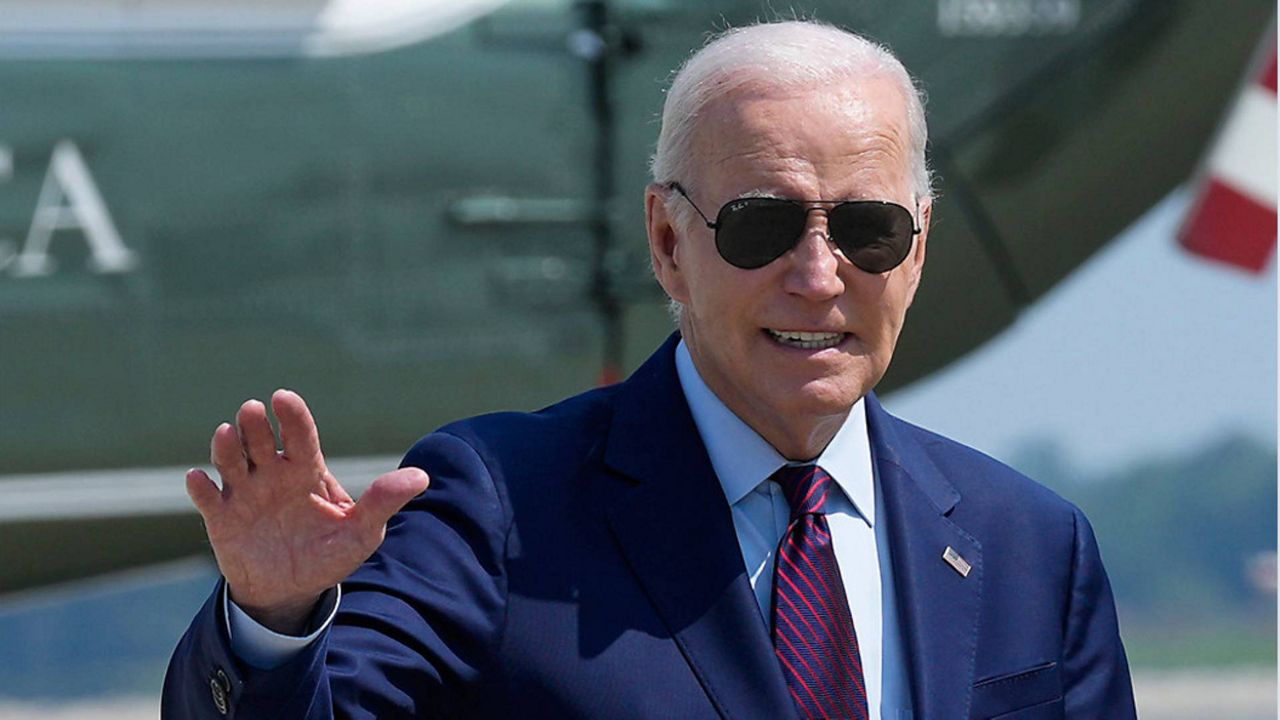As contract talks between the United Auto Workers and the Big Three automakers become increasingly contentious, President Joe Biden weighed in Monday, saying that “the need to transition to a clean energy economy should provide a win-win opportunity for auto companies and unionized workers.”
The president’s statement comes almost a week after union leader Shawn Fain threw the proposed contract from Stellantis into a trash can during a livestream.
Fain said the Stellantis proposal to cut health care coverage, reduce employer 401(k) contributions and increase temporary employees was “a slap in the face.” Stellantis has said the company needs to cut workers’ pension and healthcare costs to meet the federal government’s requirement that 60% of all new passenger vehicles sold in the country be electric by 2030.
The UAW’s 160,000 members are demanding a 32-hour workweek, double-digit wage increases and pension benefits for all workers. The UAW’s current contract with Ford, General Motors and Stellantis has been in place four years and expires September 14. In July, Fain said the UAW was prepared to strike against the automakers if the companies don’t meet the union’s goals.
With one month to go before the union contract expires, “I want to be clear about where I stand,” said Biden, who has yet to win a UAW endorsement for a second term as president. “I’m asking all sides to work together to forge a fair agreement.”
Biden said he supports a fair transition to a clean energy future that ensures jobs with the Big Three auto makers pay well enough to support a family. He added that auto companies should honor workers' right to organize and take every possible step to avoid pant closures. If a job transition is needed, he asked that workers be rehired in the same factories and communities and at comparable wages to where they already work.
“The UAW helped create the American middle class,” he said. “As we move forward in this transition to new technologies, the UAW deserves a contract that sustains the middle class.”
Fain has been meeting with each of the Big Three auto makers separately since July, presenting them with a list of ten demands that includes a reestablishment of retiree medical benefits, the right to strike over plant closures, limits on the use of temporary workers, more paid time off and increased benefits to current retirees.



